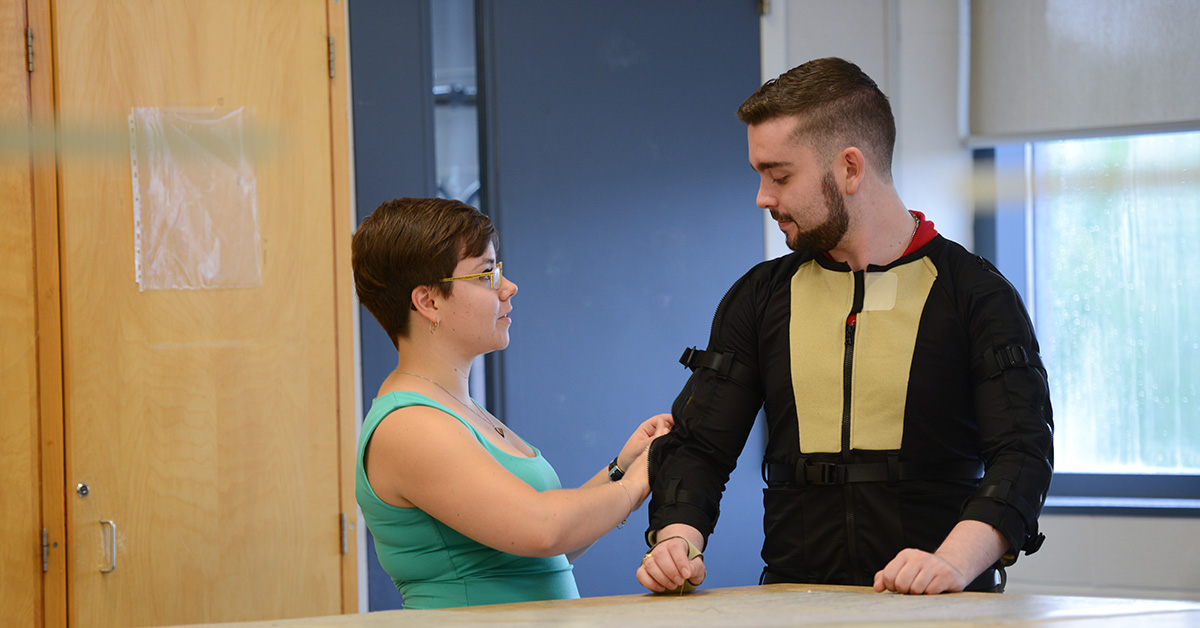Precisely measuring the severity of tremors suffered by people with Parkinson’s Disease is difficult but vital when it comes to determining the correct dosage of Levodopa, a drug therapy for patients with Parkinson’s. Fanshawe College was proud to partner with Movement Disorder Diagnostic Technologies Inc. (MDDT) to create a prototype of a motion-capture suit and tremor arm sleeve to help with diagnosing and monitoring Parkinson’s patients.
Movement Disorder Diagnostic Technologies is a London-based medical device company using technology to advance care for people whose lives are being limited by tremors. It collaborated with Fanshawe’s School of Design to create a prototype motion-capture suit, which uses MDDT software to capture data from sensors placed at fixed points across the body. The suit can be adapted for home assessment and for commercial mass production. Data obtained from the suit will be used in the ongoing monitoring and assessment of patients with Parkinson’s disease.
Louise Marchand, a student in Fashion Design at Fanshawe College, was involved in developing the suit and won in the Applied Research Category at the 2016 CICan Student Showcase.
Fanshawe College’s School of Design has also designed a prototype TremorTek sleeve based on an earlier design by Movement Disorder Diagnostic Technologies. The sleeve contains multiple sensors that can accurately analyze complex movements. Using data from the sleeve, doctors can isolate specific areas in the arm to guide drug treatments, reducing tremors over the course of seven to 10 days.
“The collaborative efforts between MDDT and Fanshawe College allowed us to address an unmet patient need in medicine,” said Jack Lee, chief technology officer at Movement Disorder Diagnostic Technologies.


